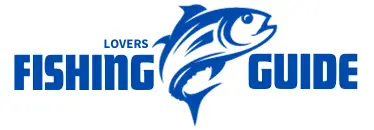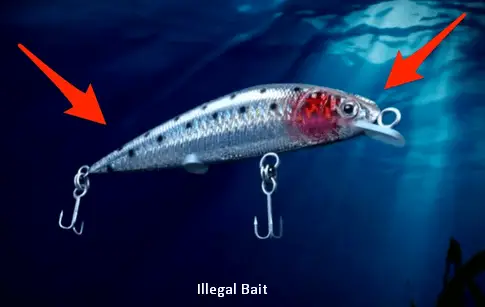Illegal fishing bait refers to any bait that is prohibited or restricted by law for use in fishing activities. Using live fish as bait is illegal in many areas due to its potential impact on native fish populations. Fishing is a popular recreational activity enjoyed by millions around the world.
Whether you are an experienced angler or just starting out, choosing the right fishing bait is crucial for a successful fishing outing. However, it is important to be aware of the legal restrictions regarding fishing bait to ensure that you are not inadvertently breaking the law.
In several locations, using live fish as bait is strictly forbidden due to concerns about the introduction of non-native species and the potential harm it can cause to native fish populations. Understanding the regulations and choosing legal alternatives is not only important for maintaining the ecosystem’s balance but also for avoiding any legal consequences. We will explore the bait options that are considered illegal in various areas and provide alternative choices that can be used legally.
Understanding Illegal Fishing Bait
Illegal fishing bait refers to any bait that is prohibited or restricted by law for use in fishing activities. The specific types of bait that are considered illegal can vary depending on local regulations and conservation efforts. Generally, bait that is made from or contains endangered species, toxic substances, or invasive species is considered illegal. These regulations are put in place to protect the environment and maintain the ecological balance of aquatic ecosystems. The use of illegal bait can have significant negative impacts on marine life, including the depletion of vulnerable species, disruption of natural food chains, and alteration of habitats. Therefore, it is crucial for anglers and fishing enthusiasts to familiarize themselves with the local laws and regulations regarding fishing bait to ensure that they are not inadvertently using illegal bait and contributing to environmental harm.
Types Of Illegal Fishing Bait
Common Types of Illegal Fishing Bait:
Live bait regulations:
- Some jurisdictions have restrictions on the use of certain live bait, such as crayfish or frogs, to prevent the introduction of non-native species.
- In certain areas, using live bait is not allowed due to concerns about overfishing and conservation.
- Anglers may be required to obtain special permits or licenses to use live bait in specific locations.
Chemical bait restrictions:
- Using chemically treated bait or substances that can harm the environment is prohibited.
- Some chemicals, like artificial scents or attractants, may be banned to maintain a level playing field for all anglers.
- Regulations may also exist to protect aquatic ecosystems and prevent the introduction of harmful substances.
Protected species as fishing bait:
- It is illegal to use certain protected species as fishing bait, even if they are commonly available or considered effective.
- Endangered or threatened species should not be used as bait to avoid further harm to their populations.
- Regulations vary depending on the specific species and location, so it is crucial to familiarize yourself with local laws before selecting bait.
Consequences And Enforcement
In the world of fishing, it is important to understand what bait is legal and what is not. Using illegal fishing bait can have serious consequences and legal implications. Authorities are actively enforcing bait regulations to protect the environment and preserve fish populations.
When it comes to enforcement, authorities use various methods to ensure compliance. These may include regular patrols, spot checks, and inspections of fishing gear. They may also rely on tips and reports from the public to identify individuals using illegal bait.
Using illegal fishing bait can result in hefty penalties. The specific penalties may vary depending on the jurisdiction, but common consequences include fines, loss of fishing privileges, and even imprisonment. It is important for anglers to familiarize themselves with the fishing regulations in their area and ensure they are using legal bait.
| Legal implications of using illegal fishing bait | How authorities enforce bait regulations | Penalties for using illegal fishing bait |
| Using illegal bait can lead to fines, loss of fishing privileges, and even imprisonment. | Authorities use methods like patrols, spot checks, and inspections to enforce bait regulations. | Penalties for using illegal bait vary, but can be significant. |
FAQs For What Fishing Bait Is Illegal
Why Are Some Baits Illegal?
Some baits are illegal due to environmental concerns and the need to protect certain species.
Is Fishing With Corn Illegal In Texas?
Using corn as bait for fishing is legal in Texas.
Why Is It Illegal To Use Goldfish As Bait?
Using goldfish as bait is illegal due to animal welfare concerns. This practice is considered inhumane and cruel towards the goldfish.
Why Can’t You Use Live Bait?
Live bait cannot be used due to potential risks to the environment and the fish population. It may introduce non-native species or diseases, disrupt the local ecosystem, and lead to uncontrolled reproduction. Using artificial or synthetic baits is a safe and responsible alternative.
Conclusion
To ensure ultimate fishing success while staying within legal boundaries, it is crucial to be aware of illegal fishing bait. These banned baits protect the environment and preserve the delicate balance of aquatic ecosystems. By avoiding the use of prohibited bait, you not only uphold fishing regulations but also contribute to the sustainability of our natural resources.
Stay informed, use legal baits, and enjoy a rewarding fishing experience that aligns with conservation efforts.

